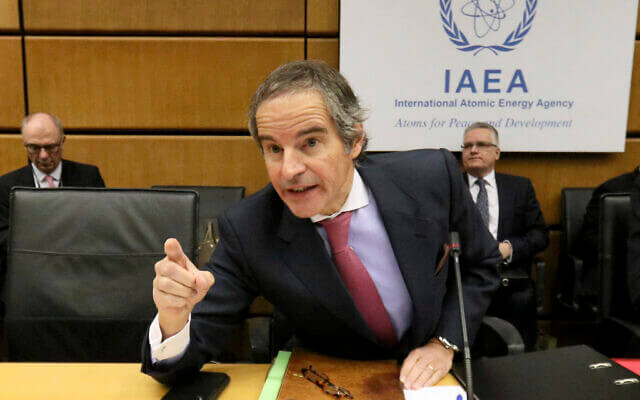International Atomic Energy Agency (IAEA) chief Rafael Grossi said Iran has breached the nuclear deal too many times for the Biden administration to simply return to the original deal without any new agreements, according to Reuters.
“I cannot imagine that they are going simply to say, ‘We are back to square one’ because square one is no longer there,” said Grossi in an interview with Reuters.
In 2018, President Trump withdrew from the deal calling it “a horrible, one-sided deal” that allowed Iran’s military budget to grow by nearly 40 percent, allowing the dictatorship to thrive at the expense of the Iranian people who “are the rightful heirs to a rich culture and ancient land.”
Since 2018, Iran has openly acquired more centrifuges and increased its nuclear activity breaches which Grossi said will need to be addressed if the U.S. hopes to revive a deal with Iran.
Iran currently has 12 times the amount of enriched uranium it is allowed under the nuclear deal, is increasing the purity of its enriched uranium and is utilizing restricted locations for nuclear activity.
Biden says he is open to rejoining the nuclear agreement if Iran will resume “strict compliance.” However, Grossi does not see how returning to the original deal without a new agreement will be possible in light of the changes in Iran’s nuclear capacity.
“It is clear that there will have to be a protocol or an agreement or an understanding or some ancillary document which will stipulate clearly what we do,” said Grossi.
A key concern expressed by the Trump Administration is that the JCPOA was only written to address a 15-year timeframe and failed to foresee consequences in the long-term.
In a statement given by President Trump in 2017, prior to his withdrawal from the deal, he emphasized the consequences of this short-term lifting of sanctions saying “in just a few years, as key restrictions disappear, Iran can sprint towards a rapid nuclear weapons breakout. In other words, we got weak inspections in exchange for no more than a purely short-term and temporary delay in Iran’s path to nuclear weapons.”









